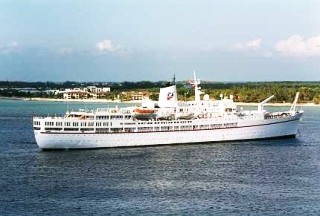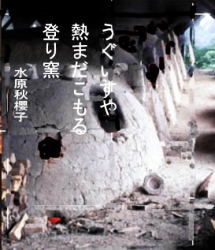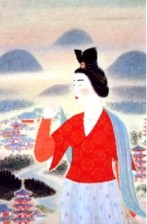|
Shiroki Kyosen
kitareri
Haru mo tookarazu (Oono rinka)
A big white ship
has arrived in port.
Spring shall come before long.
(translated by sigmats)
At the time when Rinka composed this haiku in 1935,
big passenger ships arrived in Yokohama port on May
every year. This interesting fact clearly dates this particular haiku to the Twentieth Century, since it refers, not to traditional Japanese ships, but to ocean liners.
Uguisu ya
Netsu mada komoru
Nobori-gama
(Mizuhara Shuoshi)
A bush warbler was singing in the trees.
The kiln above
remained still warm.
(translated by sigmats)
Shuoshi visited Hamada Shoji's pottery,
located in Mashiko of Tochigi Prefecture,
in March 1962. By the way, today I heard
a bush warbler singing outside for the
first time this year.
Uguisu wa
Saho no Megami no
Tukai tomo.
(Suzuka Noburo)
The bush warbler is the messenger
of the goddess of Saho,
I hear.
(translated by sigmats)
Saho is located in the northeast of Heijou-kyo
(the old name of Nara city), and abounds in
famous temples such as Hannya-ji, Hokke-ji
and so on. In Japan, the east is the direction
of spring, therefore the goddess of Saho is
the one of spring. By the way, a bird
like a bush warbler lives in my garden,
pecking seeds every morning. It seems
to me the messenger of something.
© by Shigeki Matsumura 2004
|











